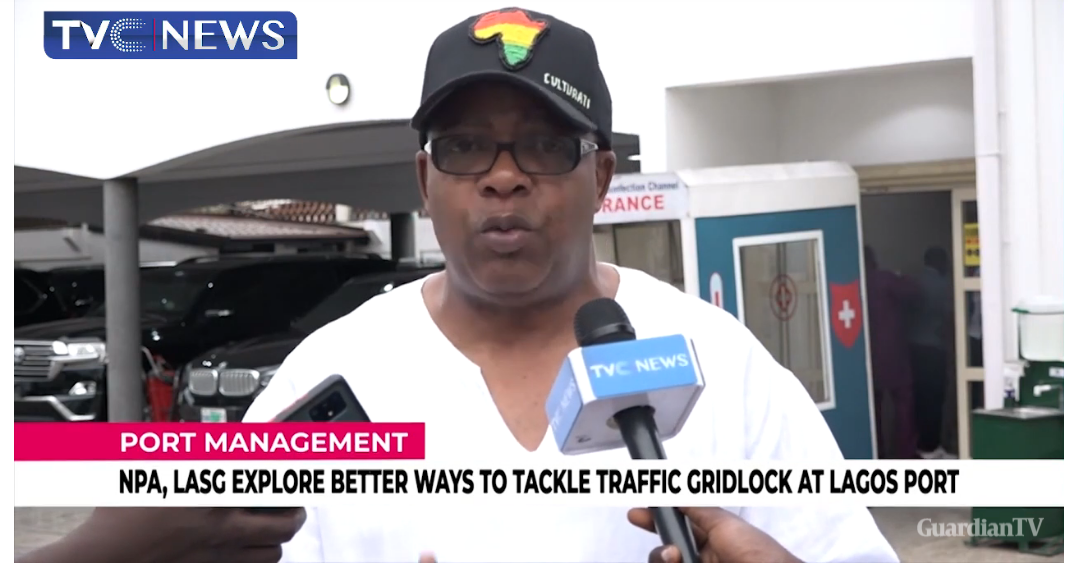By Sulaimon Salau
The refusal of petroleum tanker drivers to key into the electronic call-up system has been identified as a major threat to the evacuation of cargoes from Lagos seaports.
The electronic call-up system, otherwise known as ‘Eto’, was introduced about three months ago to solve the protracted congestion along the port access roads, which also serve as the major route to lots of petroleum tank farms in Lagos. The scheme has faced challenges from some quarters.
President of Dangote Group, Aliko Dangote, had estimated that the nation was losing about N140 billion weekly to gridlocks on the access road to Nigeria’s busiest seaports in Apapa, Lagos.
Irked by this situation, the Nigerian Ports Authority (NPA) collaborated with a private firm, Trucks Transit Parks (TTP) Limited, to deploy innovative technology that provides a solution to the traffic challenges in the corridor, as well as save the huge loss.
Some of the factors inhibiting the new call-up system include the lack of attitudinal change by truck operators and deliberate sabotage by those who have been benefiting from the chaotic system.
The Chief Operating Officer, Trucks Transit Parks, Temidayo Adeboye, in an interview with The Guardian said the activities of tanker drivers, who refused to key into the electronic call-up system, is hampering the success of the scheme.
Adeboye said “As we are trying to solve the traffic problem for NPA, the oil and gas tankers storm the road uncoordinated and have refused to key into the new technology,”
He said the company is currently working with the Lagos State Government to incorporate the oil and gas operations into the Eto system.
According to him, there is a need to create a trailer park for the tankers and scheme their schedule of operations to suit a perfect traffic system.
Adeboye explained: “When we looked at the demography of the traffic in Apapa, we found out that apart from the port-related traffic, 30 per cent were oil and gas, then the remaining 20 per cent was fast-moving consumer goods (FMCG).
“In the first two weeks, we came up with a solution but as they say when you fight corruption, it will fight back. There were lots of money that were changing hands and people were profiting from the chaos and weren’t happy when TTP came.
“So people started fighting back and the major fight back we had was the human-technology interface. So we deployed the right technology to drive the process and it was a very reliable system, it was organised and guaranteed easy control of traffic,” he said.
Managing Director, TTP, Jama Onwubuariri, said that the company would continue to improve on the system, urging the government to ensure strict enforcement of the process through the security agencies.
He said the company is working with the state government to establish an investigation and monitoring team, adding that it has already set up an ethic helpline to get feedback and solve immediate challenges.
On the TinCan roads, he said the construction works have hampered the free flow of traffic, as the road is too small for the available traffic.
He said: “We are making progress and we have done a lot in a short time. So far, we have processed about 100,000 trucks in the past three months. We have about 5,700 different stakeholders, that is the transporters and transport companies. And the average daily truck count at the Apapa port is about 700, while work is in progress to get the accurate statistics of how many trucks access the Tin Can port,”
Meanwhile, the Executive Secretary, Nigerian Shippers’ Council (NSC), Hassan Bello has enjoined all stakeholders in the maritime sector to cooperate with the Nigerian Ports Authority (NPA) to ensure that the electronic call-up system is successful.
Bello, in a chat with The Guardian, called on stakeholders to work with NPA to get rid of the shameful traffic gridlock in Apapa and other ports. The Shippers’ Council boss said the electronic call-up system has come to stay.
He said: “The gridlock has distorted a lot of things including tariff in the Nigerian shipping industry, so NPA’s effort to introduce a modern traffic management system by way of an electronic call-up system is most commendable,” he said.
The electronic call-up system, according to him, will remove the distortions at ports because the clearance, delivery and tariff of cargo are currently facing distortions because of the traffic gridlock.
Bello added that the modern traffic management system would halt the artificial price increase, port congestion and reduce the cargo dwell time in Nigerian ports.
The Association of Maritime Truck Owners (AMATO) and Container Truck Owners Association (COTOAN), had recently described the scheme as the best thing that has happened to the port in many years.
“Given the gridlock staring the faces of truckers, stakeholders in the maritime industry, Apapa residents and the public at large; all our members are hereby directed to support the call-up system.
“This initiative is to help regulate the movement of all trucks/tankers into the ports and tank farms”, it stated.
Original post by https://guardian.ng/features/travel/fuel-tankers-misconduct-threatening-electronic-call-up-system/

